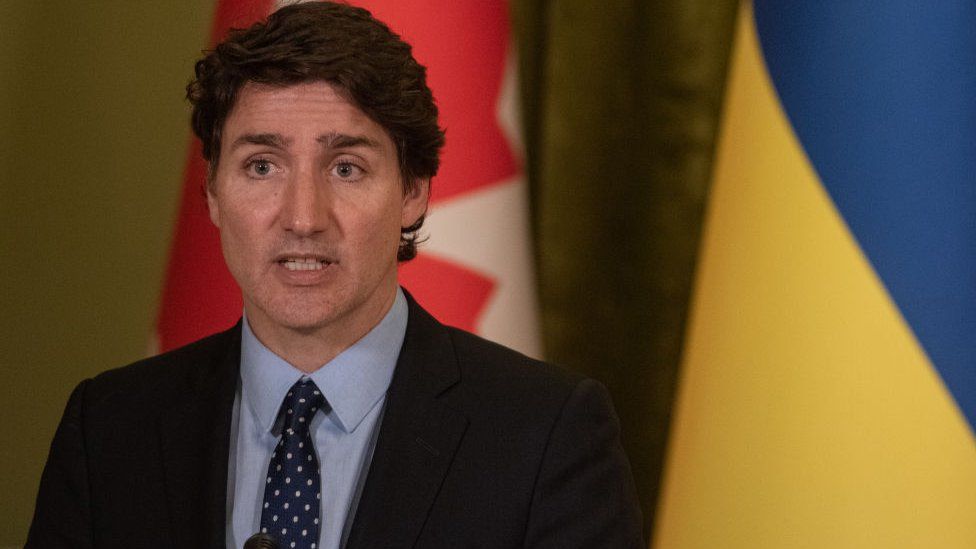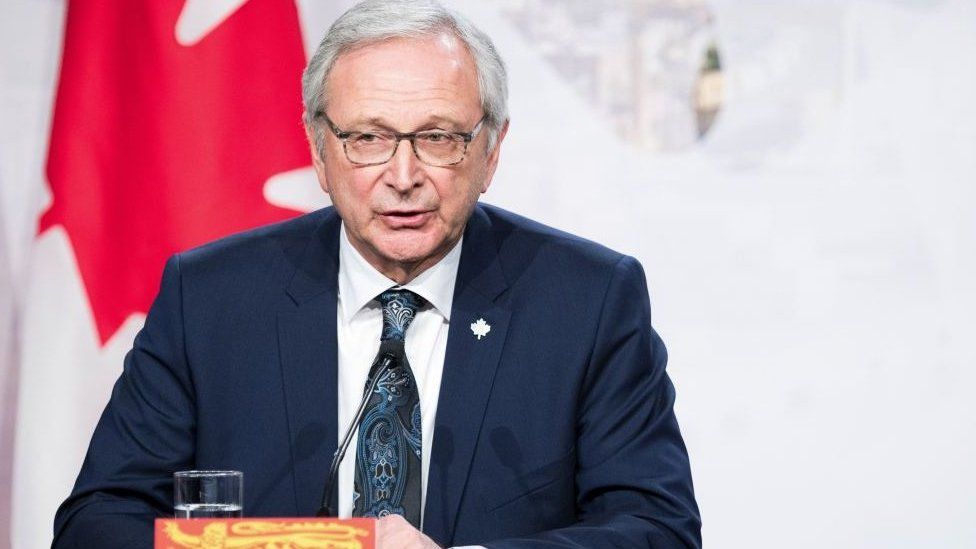Despite opposition, a contentious policy change that forbids teachers from using a student's preferred pronouns without parental consent is about to take effect in New Brunswick, Canada, causing chaos in the province.
Premier Blaine Higgs of New Brunswick announced in May that the policy establishing a safe space for students who identify as LGBT in schools would be changed, with the modifications taking effect on July 1.
The explicit mention of allowing students to participate in extracurricular activities, including sports teams, that reflect their gender identity was removed from the revised Sexual Orientation and Gender Identity policy, also known as Policy 713.
More contentious still, the modifications forbid teachers from using a student's preferred names and pronouns if they are under the age of 16 without their parents' permission, according to Bill Hogan, the province's minister of education.
The policy states that if obtaining parental consent is not possible, a student should be referred to a social worker or psychologist to create a strategy for approaching their parents.
Without seeking approval from the legislature, Mr. Higgs and his right-leaning Progressive Conservative administration updated the policy in response to "hundreds of complaints from parents and teachers.".
The government has come under fire for failing to provide proof of these complaints, and the changes have since sparked a riot in the tiny province of less than a million residents.
Two New Brunswick ministers resigned in protest, and Mr. Higgs forced the resignation of two additional ministers for opposing his plan. The premier is now increasingly in danger of losing his job as dissenters in his own party have demanded a leadership review, citing "a pattern of autocratic" rule.
The issue was discussed at the federal level after even Prime Minister Justin Trudeau voiced his opinion.
Earlier in June, Mr. Trudeau complained at a Pride celebration that "trans kids in New Brunswick are being told they don't have the right to be their true selves, that they need to ask permission.".
Trans children must feel safe and not be singled out by politicians, he said.
Pierre Poilievre, leader of the federal Conservative opposition, retorted by admonishing Mr. Trudeau to "butt out" of politics in New Brunswick.
The decision-making process should be left to the provinces and parents, according to Mr. Poilievre.
After a decade of reassurances, Policy 713 was finally adopted in 2020. In its original form, it required the use of a student's preferred name if a parent's permission could not be obtained, but it also asked for their permission before changing their name or pronouns formally.
Additionally, it permitted students to play on sports teams and utilize restrooms that were gender-congruent with their identities.
Many LGBT students in the province have benefited from the policy, according to Nicki Lyons-MacFarlane, a volunteer who works with LGBT youth in Fredericton.
They told the BBC that this policy "has validated and affirmed students.". It may have even saved lives. ".
They further stated that as a result of the modifications, students now worry about being misgendered or exposed to their families.
The policy changes, according to the administration of Mr. Higgs, are intended to "ensure parents also feel respected.". The premier, who has been in office since 2018, said he has received "a tremendous amount of outpouring support" for his position in a recent interview with the CBC.

However, there has been ferocious opposition to the changes in New Brunswick from some sections of the populace.
There have been numerous local demonstrations, and social workers and school psychologists have complained to the government.
Kelly Lamrock, a child and youth advocate for the province, referred to the new policy as "shoddy and unintentionally discriminatory.".
The modifications to Policy 713, according to Donald Wright, a professor of political science at the University of New Brunswick, surprised some people and have been a hot topic of discussion for many in the province. However, Mr. Wright noted that the premier is renowned for endorsing "wedge issues" that frequently cause conflict.
"He thinks enough people in New Brunswick will support him on this," the man said.
However, Mr. Wright claimed that the move had turned out to be a remarkable political risk for the premier.
He declared, "He's lost a quarter of his cabinet.". That's not insignificant, either. ".
For those who had previously opposed Mr. Higgs' other policies and his style of government, Hadeel Ibrahim, a reporter who has covered the story for CBC in New Brunswick, said the changes to Policy 713 were the decisive factor.
Some people claim that the "progressive" portion of the phrase "Progressive Conservative" has been diminished because they think he is leaning too far to the right, according to Ms. Ibrahim.
Beyond the borders of the province, discussion of the New Brunswick policy quickly grew.
LGBT activists in other parts of Canada are concerned that Mr. Higgs' action indicates that "American-style politics" on gender identity are permeating Canadian society. In the US, laws limiting and regulating the lives of transgender youth are on the rise as many states pass legislation pertaining to them.
The Canadian Civil Liberties Association, a national civil rights organization, has issued a legal threat to the premier, claiming the modifications to Policy 713 are "illegal and unconstitutional.".
There has, however, also been some support. It was hailed as a "heroic decision" and a test case by Action4Canada, a British Columbia-based organization of conservative Christians.
According to a statement from the group, "Premier Higgs and (Education) Minister Bill Hogan have courageously and unapologetically taken the first steps, in Canada, towards protecting children from going down a path of destruction.".
Similar controversies on gender identity and schools have recently occurred across the nation, prompting the current discussion. A Catholic school board in the Toronto area earlier in June decided not to fly the Pride flag outside of its main offices, which led to a student walkout in protest.
Before the policy changes in New Brunswick were made public, a Second Street poll of 1,523 Canadians conducted in early May found that 57 percent of respondents thought parents should be informed if their child wants to change their gender identity.
The findings, according to Colin Craig, president of the think tank, "I don't think it is too surprising that parents want to know what their kids are up to in school.".
No formal polling regarding the policy change in New Brunswick, according to Ms. Hadeel, has been conducted. Because of this, it has been challenging to determine the extent of the premier's local support for this cause.
Some teachers in New Brunswick have already declared that they will not abide by the revised policy when it goes into effect on Saturday.
Several school boards have declared they will create their own policies allowing teachers to use a student's preferred name and pronouns without parental permission or age restrictions.
There seems to be more support for Policy 713 in its original form than the amendments, according to Mr. Wright at the University of New Brunswick, based on the political and public response.
The premier may have "misplaced his cards," according to Mr. Wright, whose future as leader is now in jeopardy.







